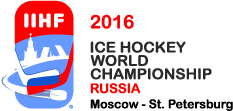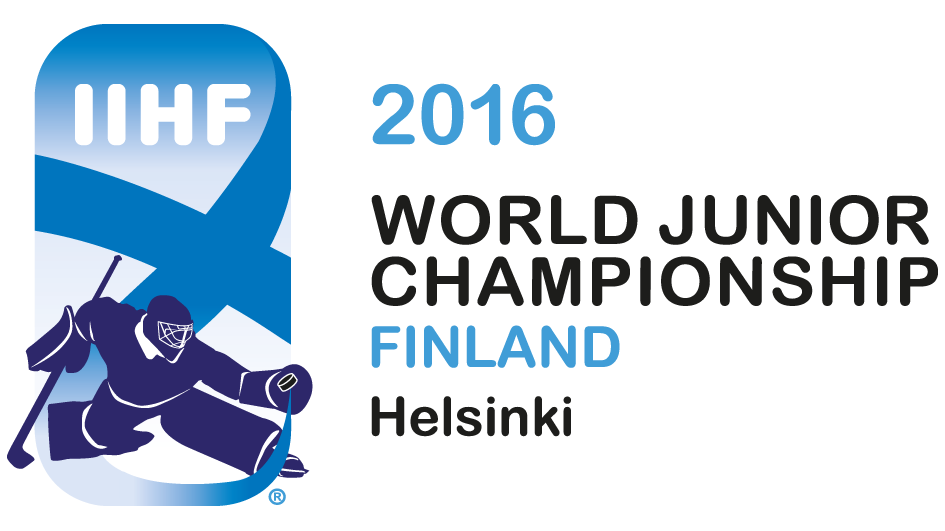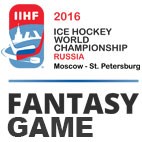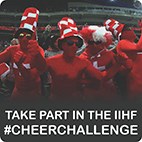Gold after Challenge Cup
Gold after Challenge Cup
A look back at Worlds on Russian soil: 1979

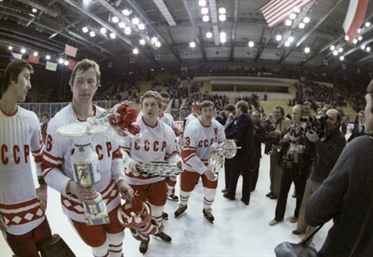 Valeri Vasiliev (2nd from left) and his Soviet teammates celebrate with the trophy after winning the 1979 IIHF Ice Hockey World Championship on home ice in Moscow. Photo: Dmitri Donskoi / RIA Novosti
Valeri Vasiliev (2nd from left) and his Soviet teammates celebrate with the trophy after winning the 1979 IIHF Ice Hockey World Championship on home ice in Moscow. Photo: Dmitri Donskoi / RIA Novosti
This time they recalled it was 25 years since the Soviets won their debut appearance at the world hockey stage. That was sufficient pretext for the Russian hockey authorities to warm up the fans’ agitation by publishing the fact.
This time eight competing teams were divided into two groups for the first stage to determine the teams for the medal round. Thanks to this new format the participating teams had to play eight games compared to former ten, some relief at the end of a hard and prolonged season.
The Championship began a bit earlier than usual, 14 April, to round up by May Day, a traditional Soviet holiday.
Following the impressive win at the Challenge Cup played in New York earlier that season the USSR team was the clear favourite, and, with an outward ease displayed their strength at the Luzhniki Palace of Sports. Naturally, all tickets for the home team’s games were sold out long before the tournament began. But Czechoslovakia, Sweden and Canada were no outsiders either.
One of the most popular personalities with media people was Marcell Dionne, forward of the then modest NHL club Los Angeles Kings and a 1972 Summit Series veteran. He spent three days getting to Moscow after his club had missed out on qualification for the Stanley Cup playoffs. A year ago, at the World Championship in Prague he was decorated with the Best Forward award and came to Moscow this time to prove his worth to exploit on his last year’s success.
The next morning he was the first to take the ice for practice. Reporters were also quick to quote his words: “Yes, I am a professional hockey player but I do not play solely for money. There are people for whom the game of hockey is business as usual. Each summer I intensely look forward to fall and winter because it’s the hockey time.”
The Soviets compared Donne’s love for hockey to that of Leonid Brezhnev, the Soviet Union’s political leader and general secretary of the communist party who never missed a single Soviet team’s game at that championship. That team opened up against newcomer Poland with an easy 7-0 win.
Coaches Viktor Tikhonov and Vladimir Yurzinov set their task as not simply winning the contest but to prove the 1978 victorious championship in Prague was not a fluke. They assembled a real star-studded team consisting of Vladislav Tretiak, Vladimir Myshkin in goal, Valeri Vasiliev, Vasili Pervukhin, Zinetula Bilyaletdinov, Vladimir Lutchenko, Sergei Babinov, Gennadi Tsygankov, Irek Gimaiev, Sergei Starikov on defence and Boris Mikhailov, Vladimir Petrov, Valeri Kharlamov, Viktor Zhluktov, Sergei Kapustin, Helmuts Balderis, Alexander Golikov, Vladimir Golikov, Sergei Makarov, Alexander Yakushev, Alexander Skvortsov and Yuri Lebedev as forwards.
Customarily, people were waiting for another series of the rivalry between the USSR and Czechoslovakia that had the Stastny brothers line of Anton, Peter and Marian. That season they combined for 100 goals playing for Slovan Bratislava. Experienced Frantisek Pospisil and Vlado Dzurilla had left the national squad by the time. The USSR won their first game 11-1. However, Viktor Tikhonov told reporters at the post-game media conference he insisted the score was no reflection of the two teams’ balance of power; the opponent had possible problems with a proper mind set or concentration. Unlike this, the Soviets played at high speed attacking incessantly.
Sweden’s coach Tommy Sandlin spoke openly he was assembling a new young squad for their home 1981 World Championship. For the time being though, there were two obviously gifted performers in the backstop with Pele Lindberg and speedy, nimble forward Mats Naslund. Both were immediately put on NHL scouts’ records who began coming to World Championships to scout for European players.
However, the first surprise to all observers came in the USSR game against West Germany. The Germans built up solid defence, which the Soviets had problem overcoming, trying to jump their usual one-on-one breakaways for winning the game in the long run with a tight 3-2 score. Later on, the USSR beat Canada 9-2.
The championship closed with USSR vs. Czechoslovakia, with the home team taking the ice as an ahead of time winner after beating Sweden 11-3. However, despite the obvious outcome, the building was filled to capacity and both teams went into high gear. Valeri Kharlamov starred in the game scoring a pair of goals with his second becoming the last goal of the championship in a 6-1 win for the Soviet Union.
The All-Star Team included Vladislav Tretiak as a goalie, Valeri Vasiliev and Jiri Bubla as defencemen and Boris Mikhailov, Sergei Makarov and Wilf Peymant of Canada as forwards. Vladimir Petrov was again the scoring leader with 15 points (7+8).
At a post-game press conference Viktor Tikhonov had problem understanding the term “absolutnaya igra” (literally “absolute game”), which was interpreted as “awesome power”. He later humbly observed they were all happy to bring joy to numerous fans by exciting and purposeful play.
The final standings of the 1979 IIHF Ice hockey World Championship: 1. Soviet Union, 2. Czechoslovakia, 3. Sweden, 4.Canada, 5. Finland, 6. West Germany, 7.USA, 8. Poland.
Back to Overview

